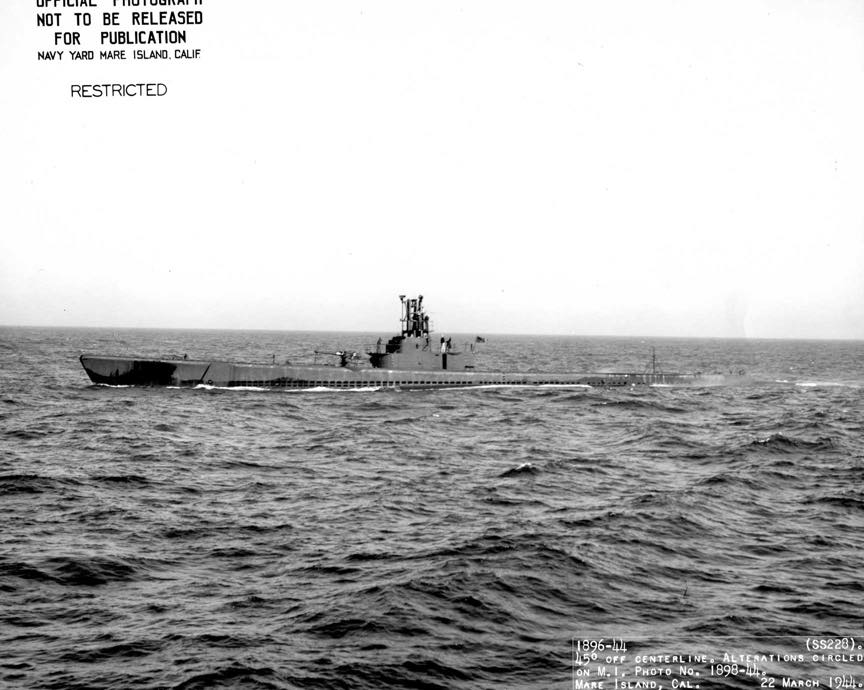
Cabrilla
An edible fish inhabiting the Mediterranean Sea and waters off the
coast of California.
(SS-288: dp. 1,626, 1. 311'9", b. 27'3"; dr. 15'3", s.
20 k.; cpl. 66; a. 1 4", 10 21" tt.; cl. Gato)
Cabrilla (SS-288) was launched 24 December 1942 by Portsmouth Navy
Yard; sponsored by Mrs. L B Combs; commissioned 24 May 1943,
Commander n. T. Hammond in command; and reported to the Pacific
Fleet.
Cabrilla arrived at Pearl Harbor 30 August 1944, and on 12 September
cleared on the first of eight war patrols. After a daring exploit in
which four Filipino guerrillas were taken off Negros Island,
Cabrilla completed her patrol at Fremantle, Australia, her base for
the next five patrols. During her second patrol, Cabrilla laid mines
in the Gulf of Siam, and sank her first Japanese merchantman, then
returned to Fremantle to prepare for her third patrol, a
reconnaissance of Sunda Strait. Her fourth and fifth patrols, off
Makassar, and in the Celebes and Sulu Seas, found her again striking
with telling results against Japanese merchant shipping. Most
successful of her patrols was the sixth, in the South China Sea and
off Luzon from 13 September to 25 October 1944. During this period
she sank a total of 24,557 tons of shipping, including a 10,059-ton
tanker. Cabrilla made her seventh war patrol in vicious weather in
the Kuriles of northern Japan, and her last patrol found her on
lifeguard duty for aviators downed at sea while carrying out attacks
on Japan.
Homeward-bound after 2 arduous years, Cabrilla cleared Fremantle 31
August 1945 for the States. Following overhaul at Philadelphia, she
sailed for the Canal Zone for exercises (19 February-17 March 1946)
then underwent pre inactivation overhaul at Philadelphia. Cabrilla
was placed out of commission in reserve 7 August 1946.
Cabrilla received six battle stars for World War II service. Of her
eight patrols, six were designated as "Successful War Patrols." She
is credited with having sunk a total of 38,767 tons of shipping.
